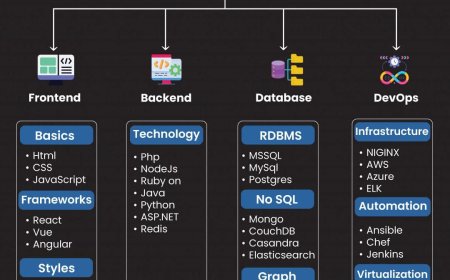Asperger Syndrome Market: Size, Trends, and Growth Strategies Through 2032

The Asperger Syndrome market is witnessing significant advancements, driven by increasing awareness and evolving therapeutic innovations. This growth reflects a deeper understanding of neurodevelopmental disorders, enabling more tailored intervention and support frameworks. Recent years have underscored the importance of customized treatment plans and rising investment in diagnostic technologies, shaping the overall industry trends comprehensively.
Market Size and Overview
The Global Asperger Syndrome Market is estimated to be valued at USD 4.07 Bn in 2025 and is expected to reach USD 5.46 Bn by 2032, growing at a compound annual growth rate (CAGR) of 4.3% from 2025 to 2032.
This robust market forecast aligns with increasing clinical research activities and rising demand for advanced therapeutic solutions across various regions. TheAsperger Syndrome Marketreport highlights key drivers supporting sustained business growth, intimately tied to rising healthcare expenditure and public health initiatives fostering early diagnosis.
Market Segments
The Asperger Syndrome market is segmented primarily into Diagnostic Tools, Therapeutic Interventions, and Support Services. Diagnostic Tools include genetic testing, behavioral assessments, and neuroimaging, where behavioral assessments dominate due to their cost efficiency and accessibility.
The Therapeutic Interventions segment divides further into behavioral therapy, pharmacological treatment, and counseling, with behavioral therapy being the fastest-growing sub-segment, backed by a 2025 clinical study indicating a 15% increase in adoption rates. Support Services encompass educational programs, counseling services, and digital platforms, with digital platforms rapidly expanding due to growing telehealth adoption evidenced by a 20% increase in usage in 2024.
Market Drivers
One of the paramount market drivers is the surge in policy initiatives promoting early diagnosis and intervention. For example, a 2024 government healthcare policy in several developed economies mandated insurance coverage for neurodevelopmental disorder diagnostics, which significantly increased Asperger Syndrome market revenue. Additionally, advancements in AI-powered diagnostic tools in 2025 have improved diagnostic accuracy by 18%, accelerating adoption and positively impacting the Asperger Syndrome market size and growth.
Segment Analysis
Focusing on Therapeutic Interventions, behavioral therapy remains the dominant revenue contributor. In 2024, a leading research hospital reported a 25% revenue increase in behavioral therapy sessions, underscoring its critical role in treatment protocols. Furthermore, pharmacological treatments are the fastest-growing sub-segment, projected to exhibit a CAGR of over 6% during the forecast period, buoyed by successful clinical trials released in 2025 demonstrating enhanced efficacy of novel compounds targeting Asperger Syndromes neurological pathways.
Consumer Behaviour Insights
Recent consumer behavior studies from 2024 reveal a rising preference for personalized therapy plans, with 68% of patients opting for treatments tailored to individual symptom profiles. Digital consumption habits are shifting as well; teletherapy sessions grew by 30% in 2025 due to convenience and accessibility. Additionally, sustainability preferences are influencing vendor choices; over 40% of caregivers surveyed preferred service providers demonstrating eco-friendly practices in 2025, highlighting the integration of sustainability into market growth strategies.
Key Players
Significant market players driving the Asperger Syndrome market expansion include Hoffmann-La Roche, SymTrend Inc., Forest Laboratories, Bristol-Myers Squibb, and CogCubed Corp.
In 2024, Hoffmann-La Roche launched a novel neuropharmacological treatment that led to a 12% increase in annual revenue. SymTrend Inc. expanded its telehealth platform regionally in 2025, resulting in a 20% boost in user engagement. Forest Laboratories introduced an AI diagnostic support system in late 2024, enhancing diagnostic throughput by an estimated 15%.
Key Winning Strategies Adopted by Key Players
A noteworthy winning strategy is Hoffmann-La Roches early adoption of AI-driven drug discovery in 2024, which reduced R&D timelines by 20%, setting new standards in innovation speed.
Similarly, SymTrend Inc. distinguished itself by integrating cloud-based analytics with patient feedback loops, improving customization of therapeutic programs, contributing to a 25% uplift in treatment adherence reported in 2025. Forest Laboratories strategic partnership with academic institutions for longitudinal Asperger Syndrome studies facilitated real-world evidence gathering, significantly enhancing their product positioning during 2024.
FAQs
1. Who are the dominant players in the Asperger Syndrome market?
Key market companies include Hoffmann-La Roche, SymTrend Inc., Forest Laboratories, Bristol-Myers Squibb, and CogCubed Corp., all of which have implemented expansion and innovation strategies in 2024 and 2025.
2. What will be the size of the Asperger Syndrome market in the coming years?
The Asperger Syndrome market size is projected to grow from USD 4.07 billion in 2025 to USD 5.46 billion by 2032, reflecting a CAGR of 4.3%.
3. Which end user industry has the largest growth opportunity?
Therapeutic interventions, particularly behavioral therapy services and pharmacological treatments, offer the largest growth opportunities driven by increased clinical adoption and technology integration.
4. How will market development trends evolve over the next five years?
Market trends indicate accelerated adoption of AI technologies in diagnostics and personalized treatment plans, alongside growth in teletherapy and digital healthcare platforms.
5. What is the nature of the competitive landscape and challenges in the Asperger Syndrome market?
The competitive landscape is characterized by innovation in digital health and pharmacotherapy solutions, while market restraints include regulatory hurdles and inconsistent reimbursement policies across regions.
6. What go-to-market strategies are commonly adopted in the Asperger Syndrome market?
Key go-to-market strategies involve integrating AI-driven diagnostics, forming strategic partnerships with healthcare institutions, and expanding telehealth services to enhance accessibility and patient adherence.
? Get more insights on :Asperger Syndrome Market
? Get this Report in Japanese Language:???????????
? Get this Report in Korean Language:?????????
Author Bio:
Money Singh is a seasoned content writer with over four years of experience in the market research sector. Her expertise spans various industries, including food and beverages, biotechnology, chemical and materials, defense and aerospace, consumer goods, etc. (https://www.linkedin.com/in/money-singh-590844163)




































